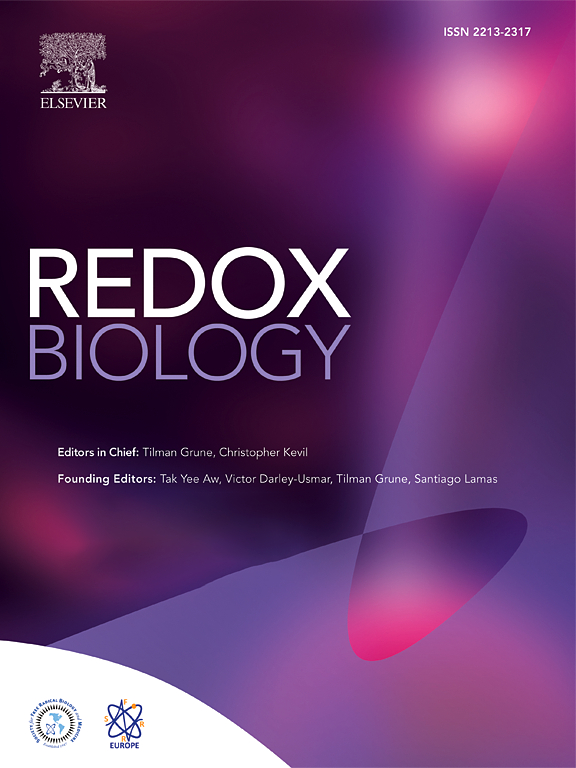A multi-omics approach reveals impaired lipid metabolism and oxidative stress in a zebrafish model of Alexander disease
IF 10.7
1区 生物学
Q1 BIOCHEMISTRY & MOLECULAR BIOLOGY
引用次数: 0
Abstract
Alexander disease (AxD) is a rare leukodystrophy caused by heterozygous mutations in the GFAP gene. To date, several in vitro and in vivo models have been generated in an attempt to unravel the main mechanisms underlying this complex disease. However, none of these models is suitable for investigating the global dysregulation caused by AxD. To address this shortcoming, we have generated a stable transgenic zebrafish line (zAxD) carrying the human GFAP p.R239C mutation, which is associated with severe phenotypes of AxD type I patients. We then performed transcriptomics and proteomics analyses on the whole larvae of our zAxD model, confirming the involvement of several pathways such as the immune system response and inflammation, oxidative stress, extracellular matrix, lipoxidation and lipid metabolism, which were previously reported in more limited omic studies. Interestingly, new pathways emerged as well, including tyrosine and butanoate metabolic processes. Biochemical assays confirmed alterations in cell respiration and lipid metabolism as well as elevated oxidative stress. These findings confirm the reliability of the zAxD model to apply a whole-organism approach to investigate the molecular basis of the disease.

求助全文
约1分钟内获得全文
求助全文
来源期刊

Redox Biology
BIOCHEMISTRY & MOLECULAR BIOLOGY-
CiteScore
19.90
自引率
3.50%
发文量
318
审稿时长
25 days
期刊介绍:
Redox Biology is the official journal of the Society for Redox Biology and Medicine and the Society for Free Radical Research-Europe. It is also affiliated with the International Society for Free Radical Research (SFRRI). This journal serves as a platform for publishing pioneering research, innovative methods, and comprehensive review articles in the field of redox biology, encompassing both health and disease.
Redox Biology welcomes various forms of contributions, including research articles (short or full communications), methods, mini-reviews, and commentaries. Through its diverse range of published content, Redox Biology aims to foster advancements and insights in the understanding of redox biology and its implications.
 求助内容:
求助内容: 应助结果提醒方式:
应助结果提醒方式:


